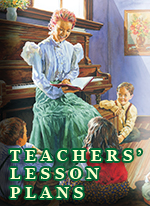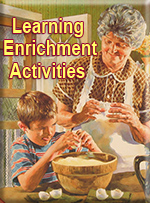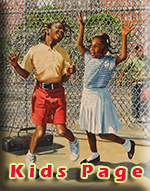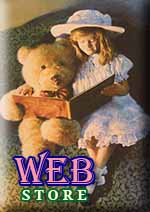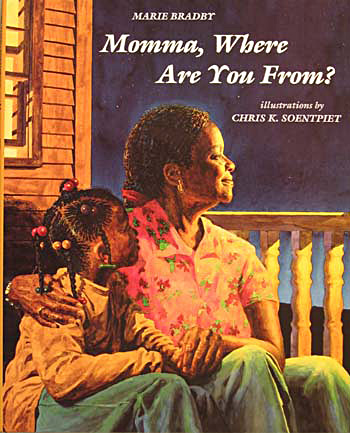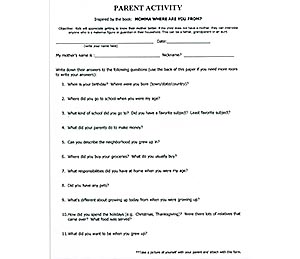|

ABOUT THIS BOOK:
Told with poetic detail and illustrated with exquisite watercolors, here is one mother's unforgettable reply to her daughter's question about her childhood. "I'm from Monday mornings washing loads of clothes in the wringer washer," Momma begins. She recalls the cries of the fishman selling croakers, the tunes of Ellington and Basie, and the bus that carried her siblings way across town, past school...after school...after school, until it stopped at the school where all the students were brown-some light, some dark, and some in-between. To get where Momma comes from, you have to travel through the roads of memory. Here is your first-class ticket for the journey.
MY THOUGHTS OF “MOMMA, WHERE ARE
YOU FROM?”:
I wanted to collaborate with Marie Bradby again after the success of our previous book, “More
Than Anything Else”. This story is packed with rhymes and playful text that will enrich African-American culture.
-Chris Soentpiet
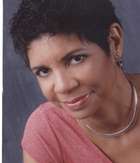 |
Children's author Marie Bradby switched from a career as a full-time journalist to mothering, fiction writing, and free-lance writing. She had held staff reporting positions with The Providence-Journal (Rhode Island), The Lexington-Herald (Kentucky), and The Courier-Journal (Louisville, KY); and was a staff writer for National Geographic Magazine.
"The neighborhood where I grew up doesn't exist any
more. I wrote Momma, Where Are You From? to tell my
son about a time and place where I grew up. The story highlights the things that would be different from today."
-MARIE
BRADBY
|

BOOK REVIEWS:
In
answer to her daughter's question, "Momma, where are you from?", a woman
answers indirectly by poetically evoking her own happily remembered childhood:
"I'm from Monday mornings, washing loads of clothes in the wringer washer"
Soentpiet's bold, realistic watercolors depict small-town African-American
life in what appears to be the '40s or '50s. They match the mother's strong
recollections of greeting the neighbors, ice-main, or fish-man; helping
out with ironing and food preparation; and gathering the evening for fish
fries and dancing to old Duke Ellington and Count Basie records. However,
these memories also include the school bus taking her brothers and sisters
way across town to schools "where all the children were brown-some light,
some dark, some in between," and living just past where the sidewalk ended.
Glowing in her mother's smile, the little girl asks if she can go there
and is assured that they can travel in memories any time. While the time
period of the mother's childhood is unspecified but clearly not contemporary,
the family's love is always in evidence. In the illustrations, people's
faces radiate light and joy, and the interiors and clothing are rendered
with loving details. This one's a keeper. -SCHOOL LIBRARY JOURNAL, April 2000
In
a large, bright kitchen, a mother is preparing dinner when her daughter
asks the title question of this attractive picture book. The mother's
answer spills across the following pages in poetic remembrances: "I am
from Monday mornings, washing loads of clothes in the wringer washer. I
am from beans-green, lima, and pea-picked, strung, snapped, and shelled."
In few words, the mother describes segregated rural life in the past from
a young black child's point of view. Her remembrances of days filled with
work, celebration, and the comings-and-goings of neighbors and peddlers
are illustrated with pictures of a smiling, harmonious family. But all
is not idealized; the mother also remembers her unanswered questions about
why her neighbor cleaned other people's houses, and why her siblings didn't
go to the school up the street. Soentpiet's detailed, beautifully lit
paintings freeze the mother's vivid memories, culminating in a dreamy,
gray-toned montage of all the previous scenes. Children will be inspired
by the mother's eloquent, proud answer to her daughter's essential question.
-BOOKLIST REVIEW, FEBRUARY 2000
In
this lyrical picture book, an African-American mother tells her young
daughter about growing up in the rural South in a time long ago. The story
and illustrations are evocative, leaving only the historical time in question;
if the question of the title is posed now, the mother's memories seem
drawn more from her own mother's-or-grandmother's-era. Nevertheless, these
are charming memories from the collaborators behind More Than Anything
Else
-KIRKUS REVIEWS, JANUARY 2000

|
(this guide was adapted by the North Carolina Children's Book Award Committee):
Theme: MOMMA WHERE ARE YOU FROM can be used to introduce
your students to African-American studies.
Pre-reading:
Show the students the cover of the book, read the title, author
and illustrators name. Ask them what they think the book will be
about.
Language Arts/Communication Skills/Writing:
- Write a story about your mother's or father's family history.
- Write a paragraph about the difference between the city and country.
- Read other books related to African-American history.
- Read material about segregation in America and how it affected people of that era.
- Discuss how our cultures have changed over time.
- Write a story about your family reunion.
Social Studies/History/Geography:
- Using reference materials, research how daily chores were done "in the past". Compare how the same chores are done today. Have students display comparisons visually on poster boards or in Powerpoint.
- In the story, it talked about the "Fish-man, Rag-man, and Ice-man". Discuss how these people jobs have or have not changed.
- Discuss how the schools have changed over the years. Web or chart results.
- Discuss segregation and desegregation.
Science:
- Discuss how food was kept fresh in the old days.
- Using reference materials, make a list of things people use daily and how they have changed. Example: lights, refrigerators, stove, irons, washing machines, and music makers.
Music/Art/Drama:
Reading:
As you read and show the illustrations have the students look closely
at the drawings. What details can they find in the pictures? Have
them look closely at the expressions on the faces of the characters
-- how do they change during the story. Ask the students how they
think the characters are feeling. Can they tell by the illustrations?
Interview:
Have students interview their mom, dad, grandmother etc.and
ask "where are they from" -- then write their story.
Related Books:
The Hickory Chair by Lisa Rowe Fraustino
Sweet, Sweet Memory by Jacqueline Woodson
The Ruby Bridges Story by Hallie Marshall
Uncle Jed's Barber Shop by Margaret King Mitchell
Literature by this author or illustrator:
SOMETHING BEAUTIFUL by Sharon
Dennis Wyeth, MORE THAN ANYTHING ELSE by
Marie Bradby. If you liked MOMMA WHERE ARE YOU
FROM write a review and post it on-line at Amazon.com
or Barnesandnoble.com
so others can enjoy your reading experience. |
|
